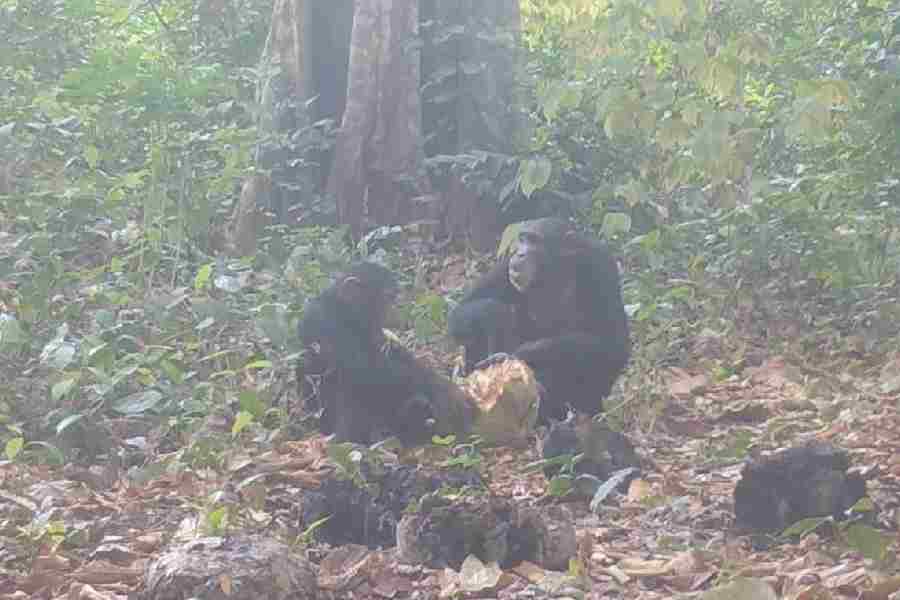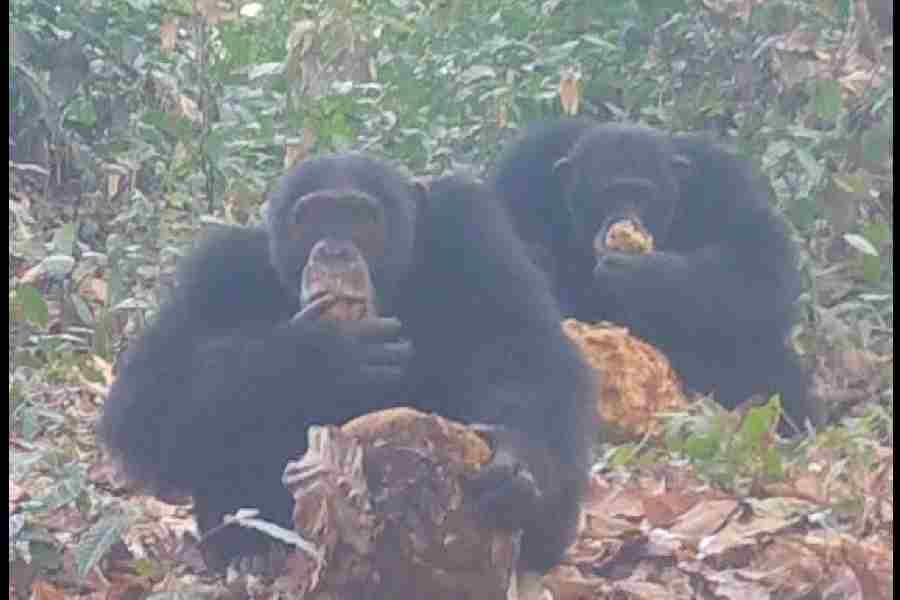Scientists have found wild chimpanzees repeatedly sharing alcohol from naturally fermented fruit, suggesting human community drinking and feasting have deeper evolutionary roots than assumed.
A study using motion-activated cameras in a forest in Guinea Bissau, west Africa, has provided the first evidence for the sharing and feeding of alcohol food by wild, non-human great apes.
Researchers from the University of Exeter observed the chimpanzees sharing naturally fermented African breadfruit that contained ethanol, or alcohol, on 10 of 70 occasions when the animals fed on the breadfruit.
The African breadfruit tree is widespread across Africa. Its large, dense, fibrous fruits — weighing up to 30kg — have been known to be part of chimpanzee diet. The fruits drop at maturity and ripen on the ground, their hard exterior softening and their pulp becoming spongy.
Using a portable breathalyser, the scientists found that 24 (86 per cent) of 28 sampled fruits contained 0.01 per cent to 0.61 per cent alcohol by volume, with late ripe fruits containing an average of 0.26 per cent.
In humans, drinking alcohol can induce feelings of happiness and relaxation, partly through the release of brain chemicals known as dopamine and endorphins. Sharing alcohol through traditions such as feasting helps strengthen social bonds.
“Now, we know that wild chimpanzees are eating and sharing ethanolic fruits --- the question is: could they be getting similar benefits?” Anna Bowland, a researcher at the Centre for Ecology and Conservation at Exeter and the study’s first author, said in a media release from the university.
Bowman and her colleagues reported their observations in the journal Current Biology.

Chimps boozing
Scientists have known for over a decade that ancestral primates had developed a tolerance for alcohol well before humans began brewing it.
In 2015, a team of US researchers found that a common ancestor of humans, chimpanzees, and gorillas had evolved a gene that could break down ethanol about 40 times more efficiently than earlier primates from 50 million years ago.
The latest observations invite the question whether community feasting behaviours date back to a shared ancestor of humans and chimpanzees, the Exeter scientists said.
“Chimps don’t share food all the time, so this behaviour with fermented fruit might be important,” Kimberley Hockings, associate professor and conservation scientist at Exeter, said in the media release.
“We need to find out whether (the chimpanzees) deliberately seek out ethanolic fruit and how they metabolise it.”
This behaviour, she said, might reflect the early evolutionary roots of feasting.
“If so, it suggests that the human tradition of feasting may have its origins deep in our evolutionary history.”










